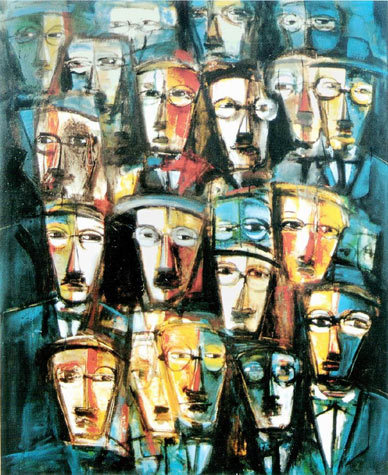What do you think?
Rate this book


Unknown Binding
A man may suffer as much in a suit of silks as in a sack or in a torn blanket. (31)
In these random impressions, and with no desire to be other than random, I indifferently narrate my factless autobiography, my lifeless history. These are my Confessions, and if in them I say nothing, it’s because I have nothing to say. (Excerpt from “The Book of Disquiet”, 191)
There are many boats destined for many ports, but no boat for life to stop hurting, nor a landing-place where we can forget everything. All of this occurred a long time ago, but my grief is even older. (79)
I am tired of confiding in myself, of lamenting over myself, of pitying mine own self with tears...
I have no really intimate friends, and even were there one intimate, in world’s ways, yet he was not intimate in the way I understand intimacy. I am shy and unwilling to make known my woes. An intimate friend is one of my ideal things, one of my daydreams, yet an intimate friend is a thing I never shall have. (30)
Poetry is in everything—in land and in sea, in lake and in riverside. It is in the city too—deny it not —it is evident to me here as I sit: there is poetry in this table, in this paper, in this inkstand; there is poetry in the rattling of the cars on the streets, in each minute, common, ridiculous motion of a workman who [on] the other side of the street is painting the signboard of a butcher’s shop... For poetry is astonishment, admiration, as of a being fallen from the skies taking full consciousness of his fall, astonished at things. (28)
Add to all this other reasons still for suffering, some physical, others mental, the susceptibility to every small thing that can cause pain (or even that to a normal man could not cause pain), add to this other things still, complications, money difficulties—join all this to my fundamentally unbalanced temperament, and you may be able to suspect what my suffering is.
One of my mental complications—horrible beyond words—is a fear of insanity, which itself is insanity. (32)
Ten thousand times my heart broke within me. I cannot count the sobs that shook me, the pains that ate into my heart.
Yet I have seen other things also which have brought tears into mine eyes and have shaken me like a stirred leaf. I have seen men and women giving life, hopes, all for others. I have seen such acts of high devotedness that I have wept tears of gladness. These things, I have thought, are beautiful, although they are powerless to redeem. They are the pure rays of the sun on the vast dung-heap of the world. (29)
What, I wonder, is the color of feeling? (80)
SECOND WATCHER Only dreams last forever and are beautiful. Why are we still talking?
FIRST WATCHER I don’t know ... (in a low voice, looking at the coffin) Why do people die?
SECOND WATCHER Perhaps because they don’t dream enough … (43)
Do not mind me. I am near, I am ever near. There is no near nor far for me. Space is the dream men have to submit to, but the dream is not theirs. (91)